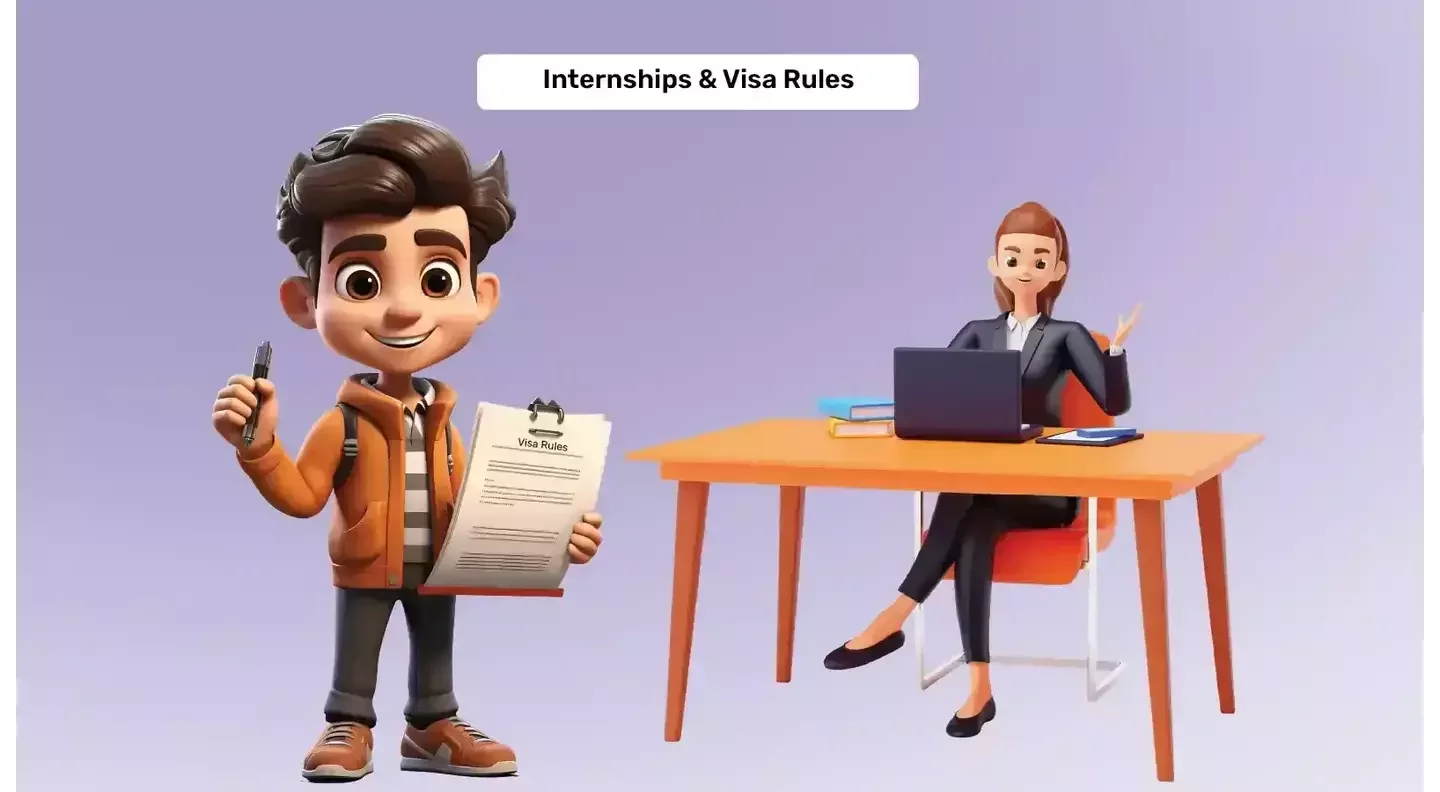Get instant loan offer suitable to your profile !


On this Page:
Learn how to work legally in the U.S. as an international student. Understand CPT, OPT, on-campus job limits & visa rules to stay compliant.
International education can be a thrilling experience, but the fees, rent, and daily spending are likely to compel the students to consider taking part-time jobs or internships. Earning while studying doesn’t just help you manage your budget, but it also provides a sense of confidence, real world experience, and relationships that extend past the classroom. In the case of international students in the United States, working does not mean just picking any job in the area. There are rules of what you can and cannot do under a student visa clearly stipulated by the U.S. government. Understanding these rules early helps you gain real experience and stay within visa limits. This way, you can make the most of your studies without putting your legal status at risk.

For international students in the U.S., the rules set around part-time jobs are strict but manageable once you get to know them. The choice available to you will be largely dependent on the type of visa you have and the fact that the employment is on campus, or on official programs.



These jobs also do not need any special work authorization and positions are filled very fast, which is why it is a good idea to apply early in the semester.


Internships are an aspect of studying in the U.S., still, international students have to comply with a particular set of visa regulations. The Curricular Practical Training and Optional Practical Training are the two primary programs identifying how and when you are allowed to work.










The idea of working off the record may be tempting, but it is simply not permitted with an F-1 or J-1 visa. Unauthorized employment includes freelancing, tutoring locals as paid work, babysitting, or remote work for a foreign firm. It remains a breach of visa regulations, and may result in severe consequences. Remember, all of the paid jobs need to be pre-approved by your school or by the USCIS.
In case you are not sure whether a job is lawful or not, the best approach is to check with your university international office before accepting any offer. During job fairs and career events, most colleges specifically label the opportunity as open to F-1/J-1 students, so make sure to look at those listings and do not violate the regulations.

Graduate, research or teaching assistantships are commonly classified as an on-campus employment for international students. These jobs do not only offer great academic experience but also offer tuition waiver or a monthly stipend thus making education affordable. In order to continue with such positions, one should perform well in school since universities require students in assistantship roles to show steady improvements.

To receive payment for any authorized job in the U.S., you’ll need a Social Security Number (SSN). Most universities help students apply once they secure a valid role. The SSN application usually requires a job offer letter and guidance from your school’s international office to complete the process smoothly.
Unauthorized work may have severe consequences on your visa status. Unauthorized employment taken even temporarily or in cash is considered to be a break of immigration law. It may lead to loss of student status, cancellation of visa, deportation or even a future entry ban. Never take up any position without first ensuring that you qualify.

Knowing what you can do on your student visa can enable you to study, earn, and gain experience safely while studying in the U.S. Always verify the latest visa and employment changes on the official USCIS site. If you’re looking to connect with other students, share job leads, or grow your network, join the GD Connect community.
Also Read:




Yes, you can, but only through approved programs like CPT or OPT. Both need prior approval and your internship should be related to your course of study.
Absolutely, but with limits. During semesters, F-1 students are permitted to work a maximum of 20 hours a week on campus. You can also work full time (when your school permits it) on official breaks.
Some students come on a work permit, such as H-1B, and subsequently seek permanent residency by working or having relatives as sponsors.
The U.S. visa imposes limitations on the hours that you are allowed to work, particularly in semesters. To pass that limit may be considered breaching of your visa terms and hence you are always supposed to ensure that you do not go beyond the permitted hours.
Following graduation, most students are able to find an employer to sponsor them to an H-1B work visa. The process involves filing through the annual H-1B lottery and meeting eligibility criteria.
Check Your Education Loan Eligibility

Ask from a community of 10K+ peers, alumni and experts
Trending Blogs
Similar Blogs

Network with a community of curious students, just like you
Join our community to make connections, find answers and future roommates.. Join our CommunityCountry-Wise Loans
Best Lenders for Education Loan

ICICI Bank

Axis Bank

Union Bank

Prodigy

Auxilo

Credila

IDFC

InCred

MPower

Avanse

SBI

BOB

Poonawalla

Saraswat